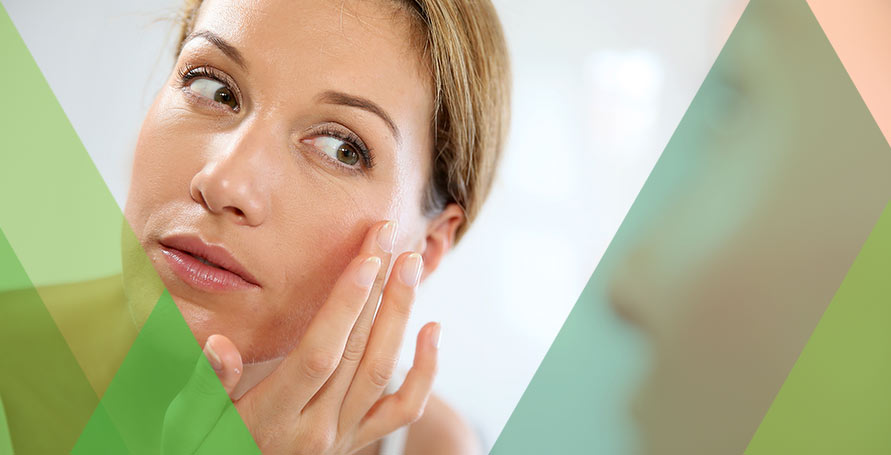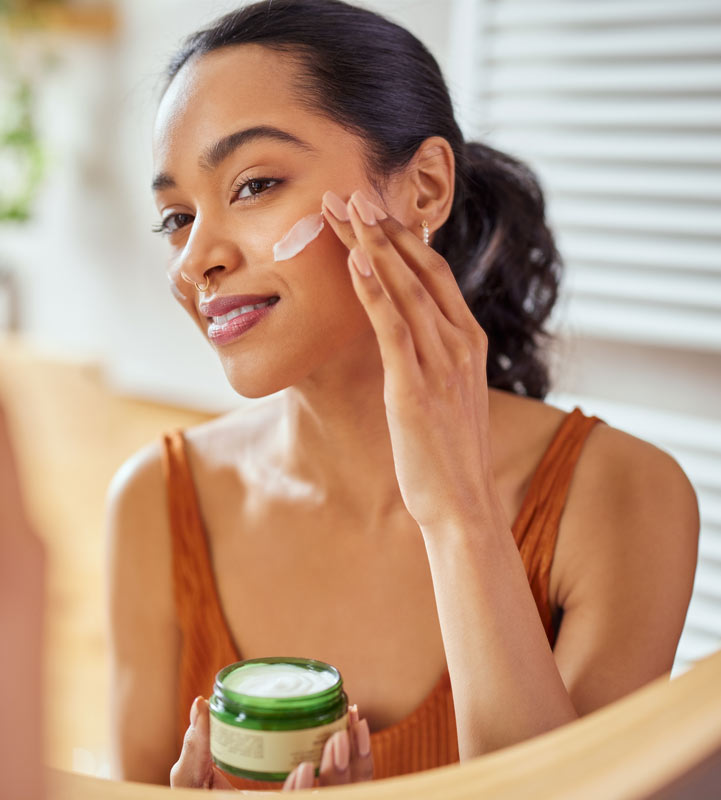
Therapeutic Dermatology and Hair Formulations
What Is Dermatology?
Dermatology is the branch of medicine that addresses your unique needs for skin, hair, and nail health. From scalp conditions to facial irritations, therapeutic dermatology can provide targeted options for problematic issues.

What Are the Benefits of Therapeutic Dermatology?
What Are the Benefits of Therapeutic Dermatology?
Belmar Pharmacy offers dermatologic solutions with specific active ingredient combinations created to support age management goals and tackle chronic skin conditions. Our compounded dermatology options are formulated in a cosmetic base, with moisturizing and soothing ingredients to aid sensitive skin. Most compounded options are designed to be applied specifically to the affected area to maximize therapeutic outcomes.
Age Management
Topical facial therapies target age management concerns. Skin often shows signs of wear as bodies age. Freckles may mark days spent in the sun. Wrinkles remind us of a life well lived. Signs of aging skin can include lack of moisture and elasticity. Fine lines tend to appear along with uneven texture and discoloration.
These concerns can often be connected to hormonal imbalances. Estrogen receptors are found in the skin, and these receptors allow estriol and estradiol to promote a strong skin barrier. Over time, estrogen production can decrease, resulting in signs of aging skin. Facial formulations with hormone replacement may replenish the vitality of your complexion.
In addition to topical estrogens, ingredients like niacinamide and peptides support important building blocks for the skin’s structural foundation, namely collagen and elastin. Topical facial formulations that hydrate and impact collagen and elastin can improve skin’s elasticity and firmness.
Ingredients like hydroquinone and tretinoin can address skin discoloration associated with sun damage, aging, and other causes.

Chronic Skin Conditions
Topical facial therapies can also target chronic skin conditions that cause irritating lesions, inflammation, and redness. Examples may include:
- Acne vulgaris
- Rosacea
- Eczema
- Dermatitis
- Urticaria
- Psoriasis
With the help of your doctor, you can identify the specific skin issue troubling you. Depending on your individual needs, the active ingredients listed below can offer therapeutic benefit:
- Azelaic Acid: Natural dicarboxylic acid that has anti-microbial and anti-inflammatory properties
- Spironolactone: Anti-androgen that may help reduce sebum production related to hormonal imbalances
- Ivermectin: Anti-parasitic that can target mites found in certain types of skin lesions
- Topical Antibiotics: Antibiotics have bacteria fighting properties beneficial for certain skin conditions
- Topical Corticosteroids: Corticosteroids may offer relief for skin problems associated with itching, redness, and inflammation
Topical Hair Formulations to Target Hair and Scalp Health
The health of your hair reflects the body’s nutritional and hormonal balance. As we age, it can become more difficult to maintain therapeutic levels of the health markers that promote vitality inside and out.
Aging alone isn’t the only culprit behind alopecia. Factors impacting hair quality and quantity are varied and all should be considered to best support your therapy goals. Whether accelerating hair loss is at play or hair thinning is a concern, targeted therapies are at your fingertips. Root causes vary from person to person. Using a compounding pharmacy with a range of medications and combinations, like Belmar Pharmacy, can accommodate your individual needs within a focused formulary.
Types of Hair Health Medications
Finasteride: Finasteride can block the conversion of testosterone to dihydrotestosterone (DHT), a potent androgen. High levels of DHT in the scalp and serum can be associated with hair thinning and loss.
Minoxidil: Minoxidil, as a vasodilator, may accelerate hair growth by awakening hair follicles from a resting state into a growth phase. When combined with other hair health agents like finasteride/dutasteride and tretinoin, it has the potential for greater impact.
Tretinoin: Tretinoin may improve cell turnover and promote a healthy scalp. When formulated with minoxidil, it may help the minoxidil penetrate tissues more thoroughly.
Latanoprost: Latanoprost appears to stimulate hair follicles, but the mechanism isn’t fully understood. The medication mimics natural prostaglandin, which has been known to modulate hair growth.
Ketoconazole: Ketoconazole is an antifungal that can address dandruff and dermatitis by attacking fungi and yeast growth on scalp tissue.
Estradiol and Progesterone: Hormone levels fluctuate as we age, and imbalances can affect the hair cycle. Both estrogen and progesterone appear to have a protective effect. Estrogen support may limit dryness and thinning, and variations in progesterone may affect the pattern of hair growth.
Consistent application is important for results. Once daily or twice daily application can provide your hair and scalp with the necessary attention you can see and feel.
Antifungal Formulations to Address Fungal Nail Infections
Nail infections can appear on hands and feet but are most common on toenails. They usually begin as a few white spots, and can gradually make your nails thick, brittle, and discolored. Compounded antifungals can be formulated to target challenging infections.
Who Should Avoid Therapeutic Dermatology?
It’s always important to talk to your doctor about whether a particular medication is right for you. Some medications are not recommended if your patients are pregnant or planning to become pregnant. Be sure to discuss any current health conditions and your medical history so your doctor can recommend the best choice for you.
Common Dosage Forms of Dermatological Medications
At Belmar, our expert team compounds dermatological medications in a variety of dosage forms to suit individual preferences. These include personalized topical creams and topical solutions.

